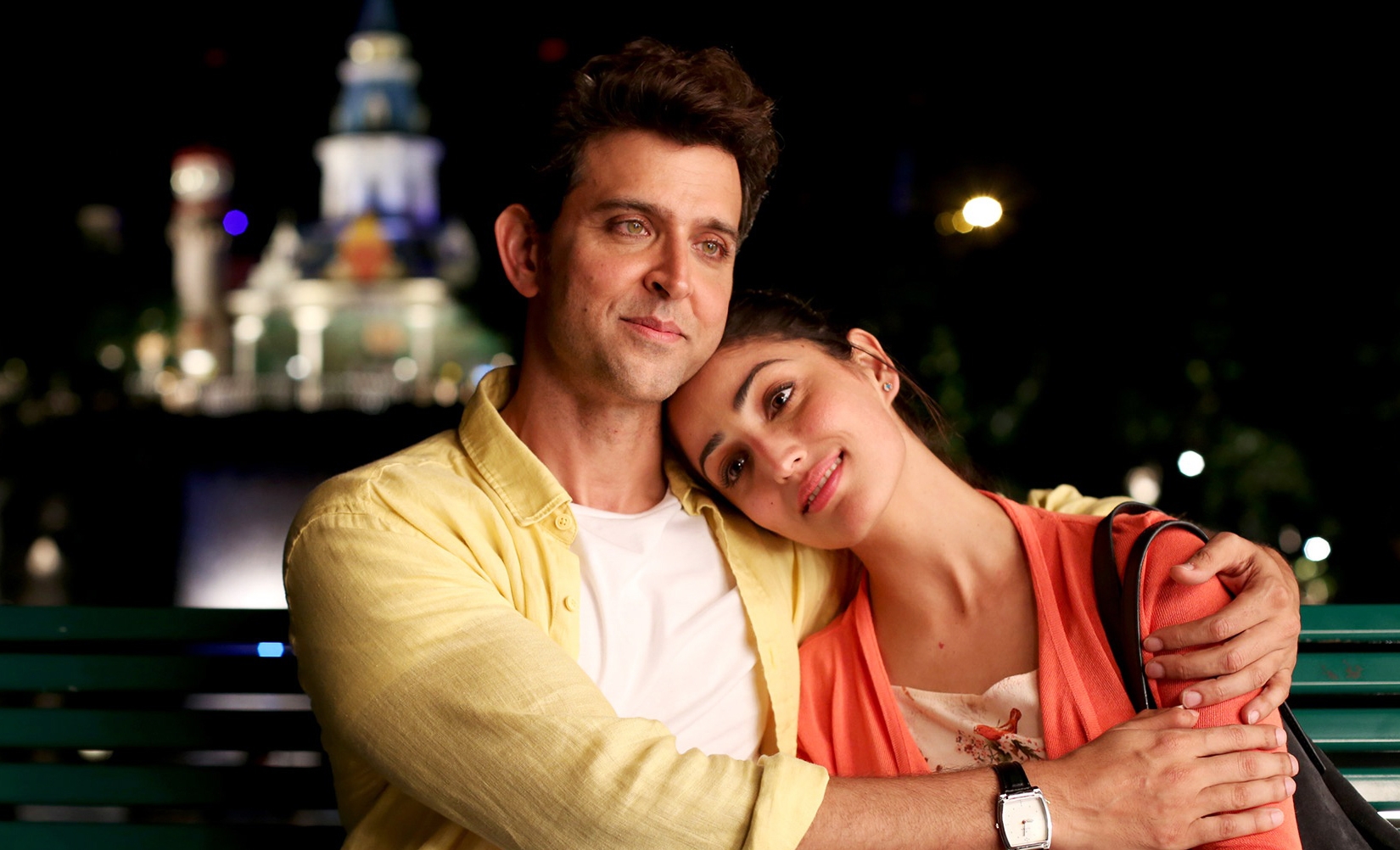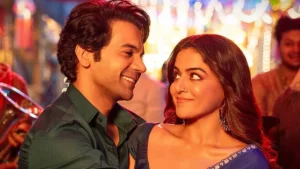
Sensitivity is not a Sanjay Gupta specialty. Even when he happens to make a heroine-centric film (Khauff, Jazbaa) or one around the differently-abled (Kaabil), Gupta goes all out hitting extremities. It is less about his abilities as a filmmaker, but more about the thought process behind the way his films are written. Take this scene from Kaabil where the blind leads (Hrithik Roshan and Yami Gautam) are set up on an oh-so-sweet date by well-wishers. As the couple gets to know each other, their accomplices comment and laugh, “Oh, they are so fair that their kids won’t even look Indian”. Of course, this is a routine compliment in a country that is obsessed with fair skin and the leading lady herself endorses a fairness product. Then we think, didn’t our cinema evolve beyond such archaic beauty standards? That’s when we realize Gupta’s vision hasn’t progressed one bit from the appalling 1990s.
Coming back to Kaabil, Sanjay Gupta’s protagonists Rohan and Supriya are blind. They’ve got zero support systems except for a friend each. Not having a family is quite a thing with our rom-com makers, but how about a back story? How did they end up in their respective stylish professions despite being blind? Talking about professions, Supriya works as a pianist at a dance institute. Fancy, fancy! Then one day our hero – otherwise known for his footwork – turns up to her place of work and shakes a leg like a professional. Supriya shows initial awkwardness but soon we see her matching feet movements and hand gestures. In short, the director had to milk the possibility of a Hrithik Roshan dance number here. And the actor takes to it as if his life depends on this one dance. Imagine what would have happened if Ashutosh Gowarikar made Jodhaabai and Akbar break into an impromptu jig (in Jodhaa Akbar) since it starred two of Bollywood’s best dancers. From a commercial standpoint, Gupta’s decision might have been sensible but the sequence looks ridiculous in the film’s context.
Coming back to modernity quotient in Kaabil‘s screenplay (Sanjay Masoom, Vijay Kumar Mishra), it only reiterates how Gupta’s writers are unanimously incapable of creating women characters – who are human and real. At one point Supriya claims, “I am an independent working woman. I don’t want to get married.” Fair enough. A couple of songs and some romance later, we see the girl seemingly settled down as a housewife. She merely coos when Rohan declares, “My reason to live is to become capable enough to fulfill all your dreams…” Independence just went out of the window, if there existed any. Plus, there is no physical or emotional ‘strength’ attributed to our ‘fair and lovely’ heroine. All she is capable of doing is smile, cry, act coy and take drastic decisions. There is no character, no actual personality in Supriya for us to pine for. She is one gorgeous wallflower, definitely, and there is enough manipulation around her vulnerability, literally demanding our sympathy. Then again, the audience would have reacted the same if she weren’t visually impaired anyway. Because there isn’t anything that makes our blood boil as rape does.
Black or white. Sanjay Gupta’s characters flaunt these two textures. Mostly dressed in bright colours, Rohan and Supriya are so white (no pun intended) that they will willingly spend all their earnings in charity (just saying). Rohan displays implausible shock when his friend hands over a pack of condoms on his wedding night. Kya yaar! The villains are black as coal – and for no reason whatsoever. There are scenes injected only to showcase their villainy. The rapist’s affluent brother turns up at an emotional day in Rohan’s life, only to make a couple of disturbing statements. The idea is to make the viewers furious, that is eventually accomplished but why so much hatred, so much violence? The aftermath of rape is so insensitively pictured that we shudder on how the whole ‘concept’ was passed by the creative team in first place.
Though soppy, Kaabil’s first half is still watchable. Some crisp editing (Akiv Ali) and fantastic sound (Resul Pookutty) to help, there are moments that we half-heartedly buy. However, the second half completely nosedives despite Hrithik’s sincerity. Rohan’s avenging angel act is more of a caricature with those far-fetched mimicry manoeuvres. Gupta and his panel of writers try hard to be ‘smart’ by taking pointers from the first half to construct twists and turns in the latter. But, in vain. The film soon reaches a crescendo of boredom that we wish this grotesque trail of revenge had an end to it. Also out of nowhere pops up an item number (‘Saara Zamana’) because for Sanjay Gupta, it’s tradition.
Kaabil is rather slick on the technical front though. Camera by Ayananka Bose and Sudeep Chatterjee is very good, except for the overtly coloured Marine Drive shots. Rajesh Roshan’s music, on the other hand, leaves a lot to be desired. However, the title track works very well which could also be attributed to the couple’s balmy chemistry.
Coming to the most predictable statement in this write-up. If I could sit through Kaabil, it is ONLY because of Hrithik Roshan’s unimaginable effort. My question is, why can’t he capitalize it to some real, good cinema? You are a talented superstar with great looks and immense mettle to bring in audience. Then, why a Kaabil? How about another Zindagi Na Milegi Dobara, Lakshya or a Jodhaa Akbar? Priorities maybe! Yami Gautam is so made up that it calls for a magnifying glass to spot the actual person beneath. A decent performance, as always… we just wish the actor had better films in her kitty. Ronit and Rohit Roy play the most generic, one-note villain characters that let them comfortably sleepwalk. Suresh Menon is nice, in a non-comical role. Rest of the cast pass muster.
To cut it short, Kaabil will find it tough to ‘win hearts’, if it ever intended to. Our audiences have evolved and a good marketing strategy around amassing “4 star” ratings way before the release won’t do the trick. After all, the public knows what they are paying for. It is unfortunate that films like Kaabil propagate wrong messages on how hard is to be a differently-abled person, or to just be a woman. The writers end up projecting both as pure objects of sympathy and nothing else. What were you thinking, Roshans?


[…] lessons in school days imparted by an obviously amoral teacher. Similar to the recently released Kaabil, this film normalizes a whole lot of wrong ideas that are inculcated and practiced in the society, […]